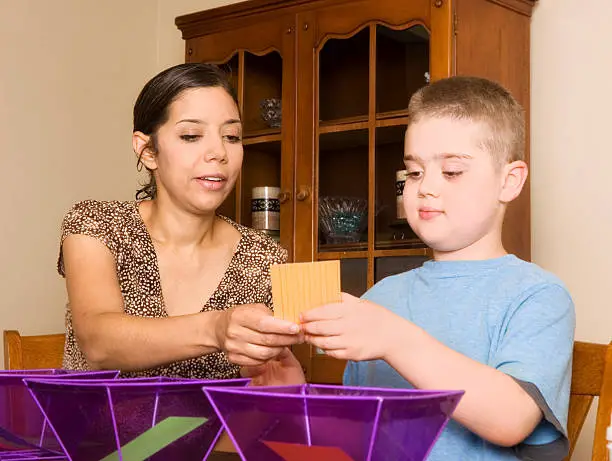Autism education grants are financial awards provided by various government bodies, private foundations, and nonprofit organizations that aim to support projects specifically designed to assist individuals with autism spectrum disorder (ASD).
These grants are intended to help educators, schools, and community organizations implement programs that foster inclusion, build skills, and create supportive environments for students with autism.
The purpose of these grants is to improve access to education, provide special resources, and train educators on effective ways to support students on the spectrum. From enhancing classroom experiences to offering therapeutic services, autism education grants aim to bridge the gap in educational resources available for children with autism.
Why Are These Grants So Important?
Education is a critical aspect of every child’s development, but for children with autism, there are unique challenges that make their educational needs different. Children on the autism spectrum often require specialized teaching strategies, therapeutic interventions, and individualized support to succeed academically and socially. These needs are not always met within the standard classroom setting.
Autism education grants are pivotal because they provide funding for:
- Specialized curriculum development: Many school districts and organizations are focused on designing educational programs tailored to the needs of children with autism, but lack the funds to do so. Grants help fund the creation of programs that integrate evidence-based practices for teaching children with autism.
- Teacher and staff training: For educators, staying informed about the best strategies for teaching children with autism is vital. Grants often fund professional development programs that help teachers, administrators, and support staff learn how to effectively address the needs of students on the spectrum.
- Supportive classroom environments: To help students with autism thrive, they need classrooms that are structured, sensory-friendly, and equipped with the right resources. Many autism education grants go toward improving the physical environment of schools, such as sensory rooms, adaptive tools, and individualized learning stations.
- Research on autism education strategies: Many organizations use grants to fund research into effective autism education techniques and interventions. These research projects often lead to more refined, practical solutions that can be applied in classrooms across the country.
Types of Autism Education Grants
There are several types of autism education grants available. Whether you’re a teacher, nonprofit, or school district, it’s essential to know where to look for funding opportunities. Let’s break down some of the most common sources of autism education grants:
1. Federal Grants
The federal government, through departments like the U.S. Department of Education (ED) and the Department of Health and Human Services (HHS), provides several grant opportunities for autism-related education initiatives. One example is the Autism Spectrum Disorder (ASD) Demonstration Program, which funds programs aimed at improving services for children with autism.
- The Individuals with Disabilities Education Act (IDEA): Under IDEA, there are various funding opportunities to help students with disabilities, including autism. IDEA ensures that children with autism have access to free and appropriate public education (FAPE), and it provides federal funds to support educational programs. According to the U.S. Department of Education, IDEA funding has helped millions of children with disabilities access quality education.
- National Institute of Mental Health (NIMH): The NIMH offers research grants for autism-related studies, particularly in the field of education. These grants can be used to study effective teaching strategies, therapeutic interventions, and early childhood autism programs. Studies funded by NIMH often find breakthroughs that have a direct impact on teaching practices across the country.
- The Office of Special Education Programs (OSEP): This division within the Department of Education offers competitive grants to schools and nonprofit organizations that provide programs for students with autism. OSEP’s initiatives often come with guidance on implementing programs that are sustainable and scalable over time.
2. Private Foundations
There are numerous private organizations that provide grants specifically for autism education. These foundations focus on supporting innovative projects that can improve the lives of children with autism. Some notable examples include:
- Autism Speaks: One of the largest autism advocacy organizations in the world, Autism Speaks offers a variety of grants for autism research, as well as educational programs. Their Autism Cares program provides grants to schools, nonprofits, and other organizations that offer services to individuals with autism. According to their website, Autism Speaks has awarded millions of dollars in grants to support community-based projects.
- The Doug Flutie, Jr. Foundation for Autism: This foundation supports programs that provide services and support for children with autism, particularly in education. They offer grants to organizations working on inclusive educational programs and initiatives for children with autism. The foundation has a strong track record of funding innovative educational projects that have led to improved learning outcomes for autistic students.
- The M.I.N.D. Institute: The M.I.N.D. Institute at the University of California, Davis, offers research grants, but it also collaborates with schools and organizations on autism-related education initiatives. By combining research with practical application, they aim to bring scientific advancements directly into the classroom.
3. State and Local Grants
In addition to federal and private funding, there are also state and local grants available for autism education programs. These grants vary from state to state and can be accessed through state education departments or local government agencies. For example:
- State Departments of Education: Many states have specific grant opportunities for special education programs, which include autism. These grants can support teacher training, specialized curriculum development, and other autism-related education initiatives. The National Center for Education Statistics provides data on how various states allocate funds toward special education, including autism support.
- Local Government Initiatives: City or county-level programs may offer grants for autism education to improve access to specialized services and resources within schools. These local initiatives often focus on community-specific needs and can be a more immediate source of funding for tailored projects.
4. Corporate Grants
Some corporations also provide grants for autism education as part of their corporate social responsibility (CSR) efforts. These grants are typically awarded to local schools, nonprofits, or community-based organizations that support students with autism. Many large corporations partner with autism-focused nonprofits or educational institutions to support educational initiatives.
- The CVS Health Foundation: Through its CSR efforts, CVS provides grants to organizations that support individuals with disabilities, including autism. Their funding is often directed toward educational initiatives and programs that promote inclusion. The CVS Health Foundation’s website provides a comprehensive list of grant opportunities and eligibility criteria.
- The Google.org Foundation: Google has been involved in supporting autism-related education initiatives. They have funded various projects aimed at improving digital learning opportunities for students with autism. Their initiatives often include innovative tech solutions that can be replicated across schools nationwide.
Applying for Autism Education Grants: A Step-by-Step Guide
Applying for autism education grants can be a complex and competitive process, but the potential rewards make it worthwhile. Here’s a detailed, step-by-step guide on how to get started:
1. Identify the Right Grant
Start by researching different grant opportunities. Make sure to look for grants that are specifically for autism education or special education programs. Use databases like Grants.gov and the Foundation Center to find relevant grants. These databases allow you to filter grants based on categories, deadlines, and geographic regions.
2. Review the Eligibility Requirements
Each grant will have specific eligibility criteria. Be sure to read the guidelines thoroughly to ensure that your project or organization qualifies for the funding. For example, some grants may only be available to nonprofit organizations or schools in certain states. Understanding these requirements early on prevents wasted time on unsuitable applications.
3. Prepare Your Proposal
A strong grant proposal is key to getting funding. Here are some tips to prepare an effective proposal:
- Clearly Outline Your Project: Describe the specific challenges your program aims to address and how it will support children with autism. Include the objectives, methodologies, and anticipated outcomes.
- Set Clear Goals and Objectives: Break down what success looks like for your project. Include measurable goals such as improved reading skills, increased social interactions, or reduced anxiety in the classroom environment for autistic students.
- Create a Realistic Budget: Detail how every dollar of the grant will be spent. Include costs for materials, training, staffing, and any necessary equipment. Transparency in budgeting builds trust with grant providers.
- Include Data and Research: Back up your proposal with data and statistics. For instance, you might cite that the Centers for Disease Control and Prevention (CDC) estimates that 1 in 44 children are diagnosed with autism, emphasizing the urgent need for specialized education programs. References like this add weight to your application.
- Showcase Your Team’s Experience: Highlight the qualifications of your team, their experience working with autistic individuals, and past successes. This demonstrates your capability to effectively manage the project.
- Plan for Evaluation: Describe how you will assess the success of your project. Will you use surveys, academic performance data, or behavioral assessments? Explaining how you’ll measure outcomes shows foresight and commitment to transparency.
4. Submit Your Application
Once your proposal is ready, submit it by the grant’s deadline. Be sure to follow all submission instructions carefully. Some grants may require additional documentation, such as financial statements, letters of support from community partners, or proof of non-profit status. Double-check that you’ve included everything to avoid disqualification.
5. Follow Up
After submission, some grants might allow you to follow up with questions or additional materials. It’s okay to politely inquire about the status of your application if you haven’t heard back within the specified timeframe.
Tools and Resources for Grant Writers
Navigating the world of grant writing can be overwhelming, but many resources are available to help streamline the process:
- Templates and Samples: Having a clear structure for your proposal is invaluable. Websites like GrantSpace offer sample proposals and templates that can serve as guides.
- Workshops and Webinars: Attend grant writing workshops, either online or in-person. Many organizations offer free or low-cost webinars that cover fundamentals, trends, and insider tips for successful grant writing.
- Grant Writing Books and Guides: Books like “The Only Grant-Writing Book You’ll Ever Need” can be helpful references. They provide detailed insights into the nuances of writing compelling grant proposals.
- Software Tools: Grant management software such as Foundant or GrantHub can help you track deadlines, organize documentation, and streamline the application process.
Success Stories: Impact of Autism Education Grants
Over the past few years, numerous programs funded by autism education grants have made a profound impact. For example:
- A Sensory-Friendly Classroom Initiative: A school district in California received a grant to redesign classrooms with sensory-friendly materials. The project involved creating a calm corner with soft lighting, noise-canceling headphones, and weighted blankets. After implementing these changes, teachers reported a significant reduction in classroom anxiety and improved focus among students with autism. According to their internal survey, over 80% of parents noticed positive behavioral changes.
- Teacher Training for Inclusive Education: An organization in New York secured funding through a private foundation to train teachers on new evidence-based strategies for supporting students with autism. Over 200 teachers participated in workshops, learning techniques such as visual schedules, social stories, and positive reinforcement strategies. As a result, classroom inclusivity improved, and teachers felt more confident in addressing the diverse needs of their students.
These examples underscore how targeted funding can transform educational experiences for autistic learners, leading to more inclusive classrooms and better outcomes.
Frequently Asked Questions About Autism Education Grants
Q: Who can apply for autism education grants?
A: Typically, eligible applicants include schools, nonprofit organizations, community-based programs, and sometimes researchers or individual educators. Always check the specific eligibility criteria for each grant.
Q: What can autism education grants be used for?
A: Funds can be used for program development, teacher training, purchasing adaptive equipment, research, curriculum development, infrastructure improvements, and more—all with the aim of supporting autistic learners.
Q: How competitive are these grants?
A: Competition varies by grant. Larger grants often receive many applications, so crafting a compelling, clear, and evidence-based proposal is essential to stand out.
Q: Where can I find autism education grants?
A: Databases like Grants.gov, the Foundation Directory Online, and various state education department websites are excellent starting points.
Conclusion and Next Steps
Securing Autism Education Grants can significantly impact the success of programs designed to support children on the autism spectrum. With funding from federal, state, private, and corporate sources, educators and organizations can create more inclusive and supportive learning environments for these students.
If you’re new to grant writing or looking to improve your success rate, getting the right guidance is critical. That’s where the Grant Writing Academy Newsletter becomes your invaluable resource. By subscribing, you’ll receive expert insights, tips, strategies, templates, and tools that will significantly enhance your ability to craft strong proposals and secure the funding your programs need.
Subscribe to the Grant Writing Academy Newsletter today to empower yourself with knowledge and strategies that can transform your grant writing journey and bring your autism education initiatives to life!
Remember, the more informed and prepared you are, the better your chances of success. Start applying these insights, connect with a community of like-minded professionals, and watch your programs thrive with the support of strategic funding.
Additional Resources and Support
a) Expand Your Knowledge
The grant writing field is always evolving. Keep learning and improving your skills to stay competitive.
Recommended Resources:
- Request for Proposal Success: How to Write Proposals That Win: Learn the techniques and strategies to create standout proposals.
- Tech Startup Funding Secrets: Navigating Grants for Maximum Growth: Perfect for those in the tech sector looking to leverage grants for scaling.
- Grant Proposal Guide for Environmental Projects: Tailored for environmental initiatives seeking to secure impactful funding.
- The Ultimate Guide to Federal Grant Applications: Techniques for Success: Master the complexities of federal grants with actionable insights.
Explore More Books Here
b) Invest in Expert Guidance
Want to fast-track your growth and achieve even more success?
Join one of our mentorship programs for tailored advice and support:
Mentorship Programs:
- 3-Month Mentorship: The Foundation Builder: A short-term plan to refine your grant writing skills and win your first (or next) grant.
- 6-Month Mentorship: The Proposal Pro: Dive deeper into strategies, proposal reviews, and funding plans.
- 1-Year Mentorship: The Funding Champion: Build long-term success with comprehensive guidance, unlimited reviews, and exclusive resources.
C) Book a One-on-One Consultation
Sometimes you just need personalized advice to tackle challenges or fine-tune your strategy. Let’s work together to solve your unique grant writing challenges.





tg77com https://www.tg77com.org
Hello, i read your blog occasionally and i own a similar one and i was just curious if you get a lot of spam feedback? If so how do you stop it, any plugin or anything you can recommend? I get so much lately it’s driving me insane so any help is very much appreciated.